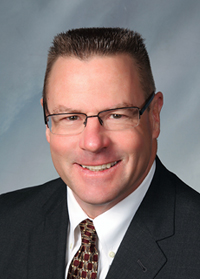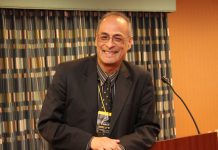The city of Cypress remains defiant to switching to district-based elections, even after facing a lawsuit and this week being told by a nonpartisan UCLA voting rights organization that barely 30 percent of city residents are white, and citizens of Asian descent comprise 37 percent.
At their regular meeting Monday, the Council voted to organize some type of community forums to discuss redistricting, but insisted they are “not even considering” district-based elections at this time.
Sonni Waknin, speaking on behalf of the UCLA Voting Rights project, a nonpartisan academic research project ensuring voters access to fair voting, said demographic shifts in Cypress demonstrate the potential imbalance in local political representation.
She said based on the 2020 census, 37 percent of the city is now Asian, 33 percent now Latino, and the remainder white and other races. Waknin spoke to the Council during the oral communications portion of the most recent meeting.
Currently, three of the city’s five council members are white. Two are Latino. None are Asian.
Softly, but firmly, Waknin pointed out apparent violations of the California Voting Rights Act posed by the city’s current at-large voting system, suggesting how the CRVA would view at-large districts “impairing” access for Asians and Latinos.
She offered to provide the city with nonpartisan, impartial academic expertise during any process of transformation to single-member districts.
Actually, the city first received formal notice of being in violation of the state’s voting rights law in September, yet Monday’s discussion was the first in public view.
Malibu Attorney Kevin Shenkman, acting on behalf of the California Voting Rights Project, formally notified the City of Cypress on Sept. 29 that there were in violation of state law. In an earlier interview, Shenkman suggested the city council’s refusal to consider appointing an Asian representative to a vacant council seat, in part, prompted his demand letter.
Upon the early resignation of former council member Stacy Berry, the council refused requests to appoint Carrie Hayashida, who is of Asian descent, who ran a strong third in recent elections and later appointed Scott Minikus to the seat.
Since Shenkman’s demand letter in September, the city has met in multiple executive sessions, where the public has been excluded, mentioning only “pending litigation.” The city has not acknowledged their apparent ongoing negotiations with Shenkman or anything that has been discussed in their closed sessions.
City officials on Monday refused to comment directly on a redistricting position and embarked on a course planning a series of community forums in 2022 to discuss redistricting, but without the possibility of creating districts.
The first bit of controversy arose when the Mayor announced a special ad-hoc subcommittee to create a series of forums to discuss voting, then asked City Manager Peter Grant why the mayor has the customary right of appointing who would serve on this ad-hoc subcommittee.
Mayor Peat then nominated only himself and Mayor Pro-tem Paulo Morales to serve on this ad-hoc subcommittee to “recommend a series of community forums on the potential of using a district-based election system.”
Peat flatly refused a request from Council woman Francis Marquez, Ph.D., to place her on the ad-hoc committee.
As a professor on political science, Marquez said she wrote her master’s thesis on redistricting and received special instruction on the redistricting process during her career in Washington, D.C.
“I feel like I’m poised to serve on this subcommittee,” she told Peat. “I respectfully request to serve,” she said.
“I hear your request,” he said, “but the ad-hoc subcommittee is going to be myself and the Mayor Pro-Tem. “We have vast experience here with seven years each,” he said.
Morales suggested Marquez could create a “bias” on the panel, since she would be a candidate for re-election while he and Peat are termed out, but then said the subcommittee was not going to study districts.
Peat had said earlier in the discussion that “this committee’s work is not focused on creating districts [in Cypress],” yet would be some sort of fact-finding mission. In Grant’s recommendation included in the meeting’s agenda, these forums will somehow at some date “inform” later decision making on redistricting.
Nonetheless, Marquez’ request to serve on the ad-hoc committee was denied. Her experience, said Morales, would be considered if and only when “we end up looking at districts, or even the potential of districts.”
Basically, in that statement, Morales claims the city, at this point, is not even considering single member districts, but will hold community forums on the subject.
Activists suggested the city is simply slow walking the issue and that the city’s destiny could be quite different had single member districts been in place.
Local Cypress activist Brittney Cook suggested many controversial issues that were approved 3-2 over the past few years “could have been different” with proportional representation.
Cook said there are “so many things I could name where certain portions of the city are just kind of ignored.” She did not, however, mention specifics.
Nevertheless, she said “there are huge populations, namely Asian and Indian come to mind, for me that are largely underrepresented in our city council and we definitely need some more representation there for those groups of people.”
Cook also questioned the wisdom of appointing Peat and Morales to the ad-hoc subcommittee, when they have been in all of the closed-door meetings that appear to have resulted in little progress.
“We have the same people having another meeting about the same thing. It just seems redundant, excessive and unnecessary,” she said. “I want to see an independent committee.”
David Burke, a Cypress resident who runs a civic nonprofit, presented advantages of district elections and said he too supports an independent redistricting commission should the Council decide to create districts.
“First, with districts, you ensure that every geographic area of the city is represented. And secondly, district elections tend to be cheaper than at-large elections for candidates who run for office,” he said.
“If Cypress does transition to districts,” said Burke, “I think it’s imperative that the districts be drawn fairly, and based on geographics population and demographics, not based on special interests or political considerations.”
The ad-hoc subcommittee will now arrange a series of forums and report back to the Council.












